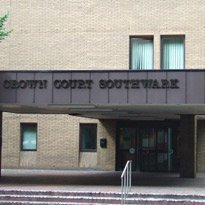Former directors of iSoft, accused of misleading the market over a £44.3m health service deal, prevented auditors from visiting Ireland to confirm the contract, a court heard.
Auditor Firoj Babariya told jurors that Robson Rhodes wanted to visit the country to check that the multi-million pound deal with the Irish Health Service Executive had been completed.
Southwark Crown Court heard Robson Rhodes asked to travel to Ireland while auditing iSoft’s end of year accounts in April 2004.
Babariya said iSoft provided him with an alleged signed copy of the contract in October 2003, but his firm wanted to confirm the delivery of the software in order to confirm the £23m of revenue recognised in the accounts.
Three former directors of iSoft, plus founder and chief executive Patrick Cryne, who is not before the court for health reasons, are alleged to have forged the purported contract with the HSE, which did not sign the deal until April 2005.
Stephen Graham, Timothy Whiston, and John Whelan are alleged to have done this to secure iSoft’s position and their own fortunes, salaries and bonuses.
Babariya told prosecutor Richard Latham QC that “the reason we were given [for not going to Ireland] was that the appropriate personnel were not available to go through what we wanted to go through.”
Mr Latham asked: “How long would that have taken?” to which Barbariya responded: “It could potentially have been an hour’s discussion with the customer.”
The auditor also said that he had enquired about contacting the HSE over the phone, but that he would have needed iSoft’s permission to do so.
He said he could not recall the outcome of the request, but when Mr Latham asked “if it had been in the affirmative what would you have done?” he replied: “Picked up the phone.”
The court has already been told that the alleged plot to mislead the stockmarket was uncovered by a whistle blower, Ian Storey, who raised concerns about the deal when Deloitte took over as iSoft’s auditors and began a review of old contracts.
None of the former directors of iSoft involved in the trial have any connection with iSoft today. The company has since been sold twice, and is now part of CSC’s healthcare group.
They each deny conspiracy to make misleading statements promises or forecasts, contrary to the Financial Services and Markets Act 2000 and section 1 of the Criminal Law Act. The trial continues and is expected to last three months.
Comments on this story are disabled to comply with the law on contempt of court, but will be reopened when the trial concludes.

